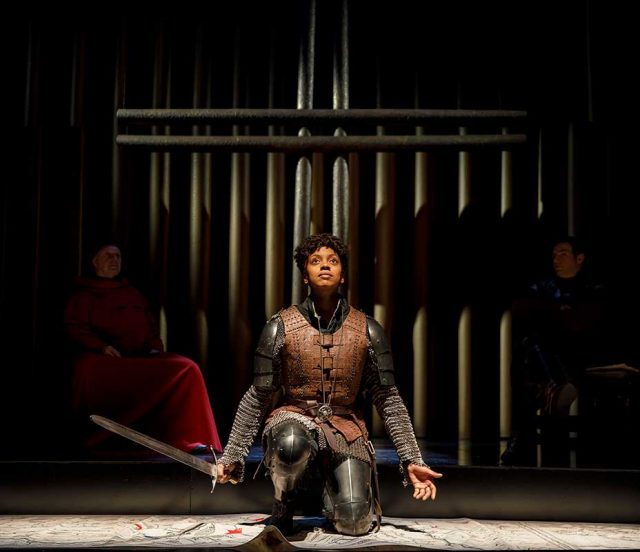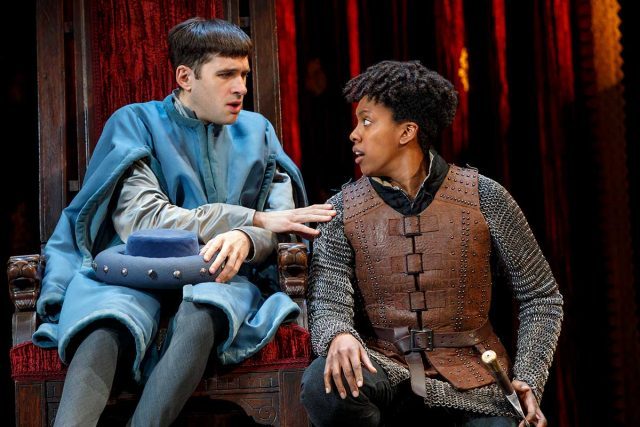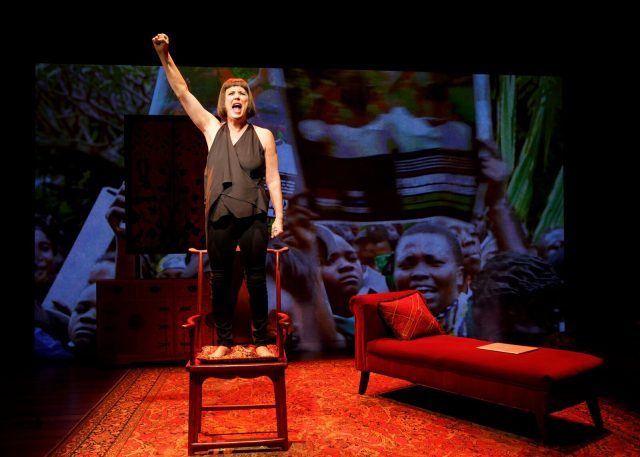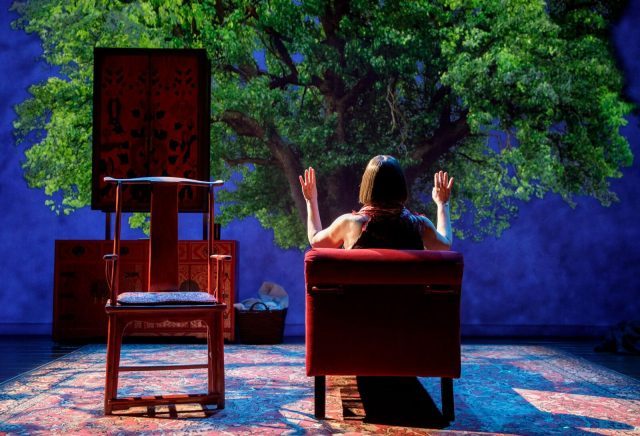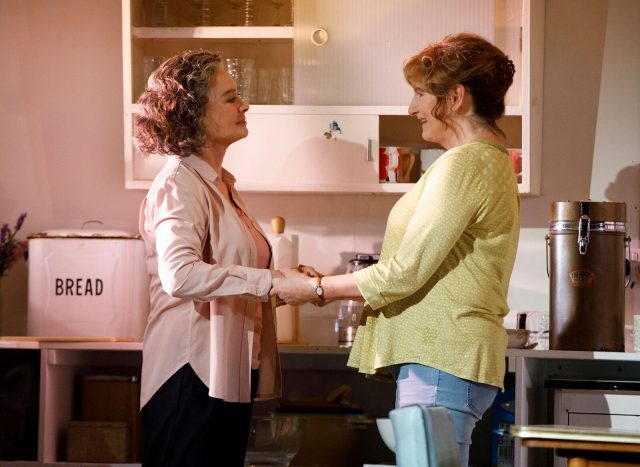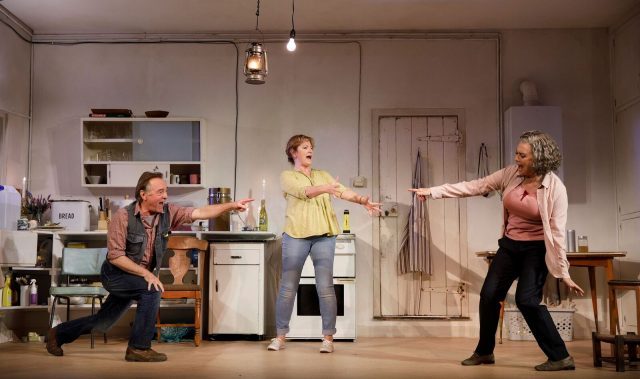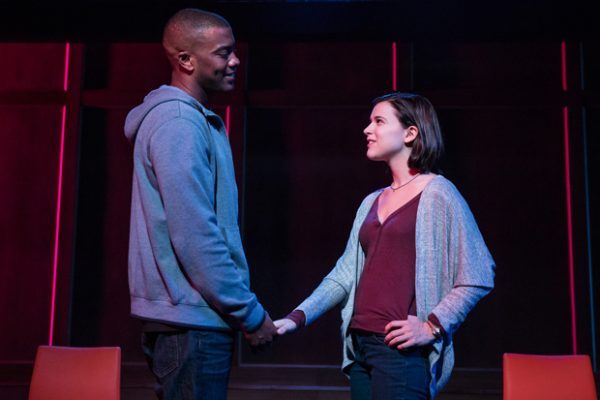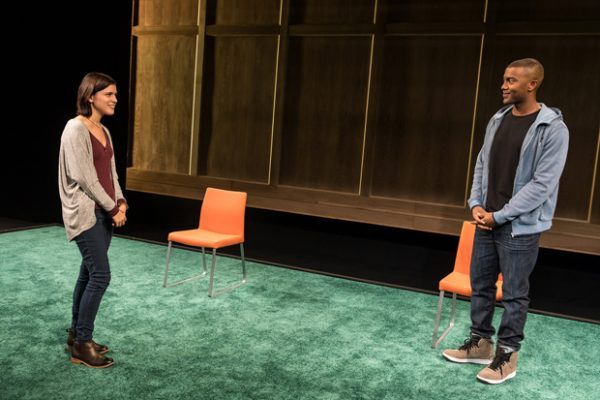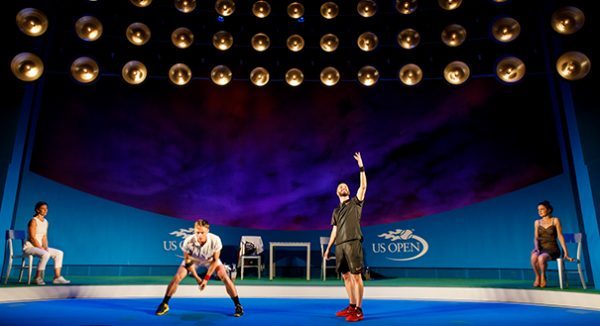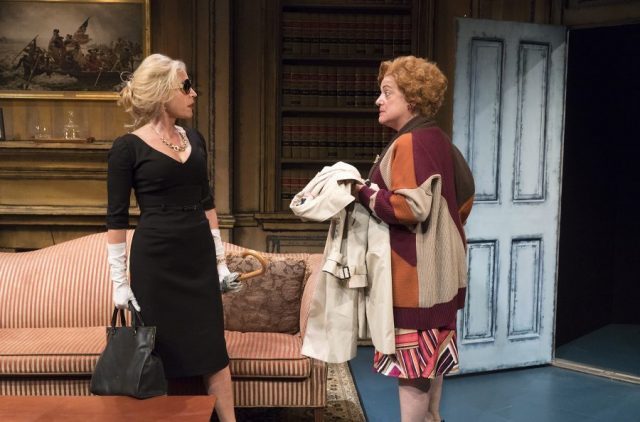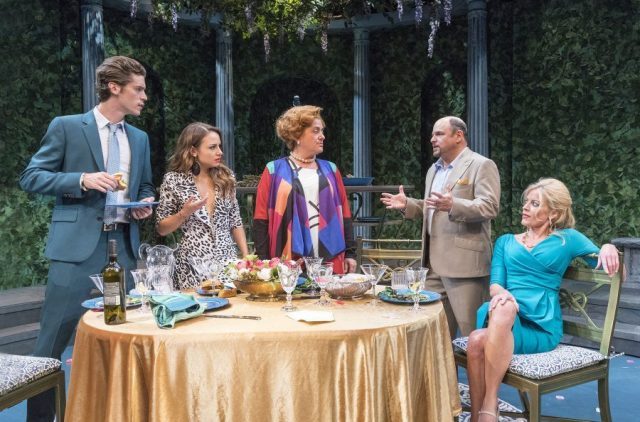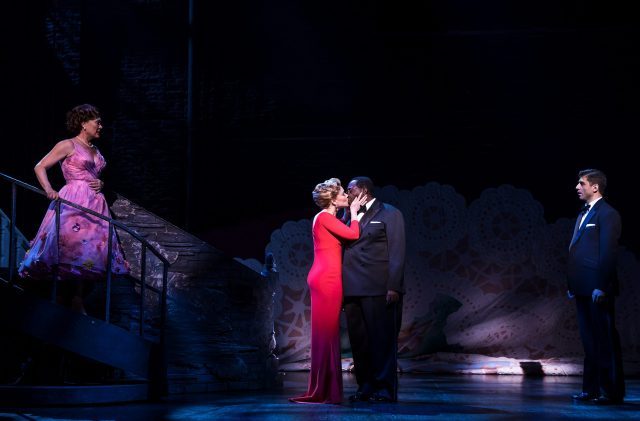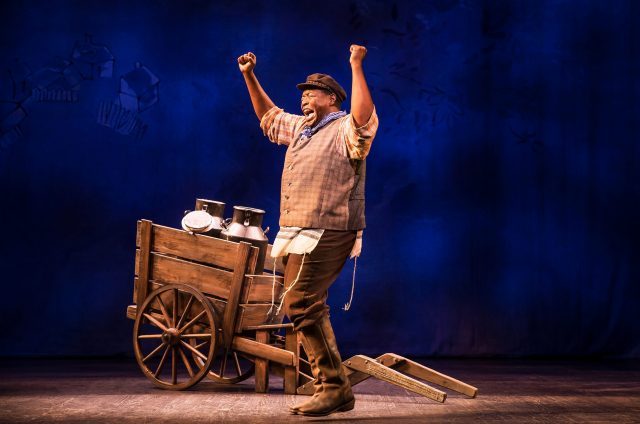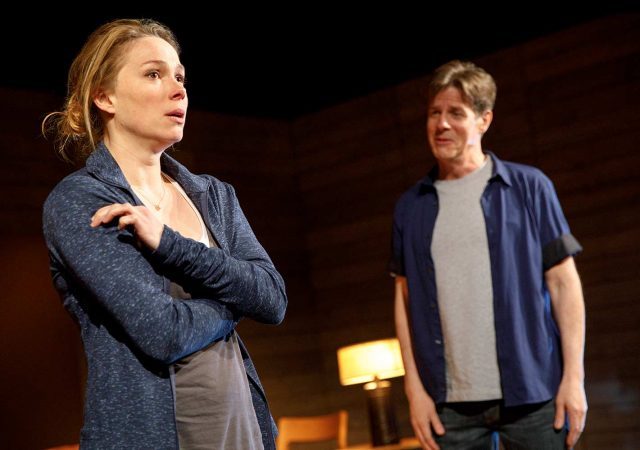
Cara Russo (Kristen Bush) is unsure what to do when Kevin O’Neill (Rick Holmes) offers her an unexpected opportunity in Dan Cody’s Yacht (photo by Joan Marcus)
Manhattan Theatre Club
MTC at New York City Center – Stage I
Tuesday – Sunday through July 8, $90
212-581-1212
dancodysyacht.com
www.manhattantheatreclub.com
Anthony Giardina’s Dan Cody’s Yacht has several gaping holes you could, well, pilot a luxury boat through. However, the Manhattan Theatre Club world premiere, which opened last night at City Center’s Stage I, still offers an intriguing ride despite the choppy waters it navigates through income and education inequality. The two-hour, two-act play begins in September 2014 in the suburbs of Boston, as smarmy financial wizard Kevin O’Neill (Rick Holmes) tries to bribe high school English teacher Cara Russo (Kristen Bush) to change his son’s failing grade on a paper on F. Scott Fitzgerald’s The Great Gatsby, the book that altered the course of his own life. “Incorruptible Cara Russo. I’ve heard about it, now I’ve seen it for myself,” he says, clunkily establishing the core of the narrative. “Chosen by her peers to be the powerful voice of the teachers in our town’s current, ill-advised plunge into liberal American mediocrity. The proposal to meld the two school districts — depressed Patchett, thriving Stillwell. To join the drug addicted, poverty ridden, low achieving children of your little town to the drug addicted but still high achieving children of mine.”
Cara, a divorced single mother, lives in Patchett, where her teenage daughter, Angela (Casey Whyland), goes to school, but she teaches in Stillwell, where Kevin’s teenage son, Conor (John Kroft), is slacking off. Cara is an important member of the committee that will decide whether the merging of the two very different schools, one filled with the haves, the other the have-nots, will be put to a public vote. Cara’s friend Cathy Conz (Roxanna Hope Radja), a working mother whose daughter, Britney, has just made the Patchett debate team, is not so sure that the plan to combine the schools is a good one. “Our high school is our town. We lose that, what have we got?” she says. “We ship our kids over the river to become second class citizens, they come back, how do they respect anything here?” Kevin invites Cara to join his small investing group, where he and other Stillwell parents, Geoff and Pamela Hossmer (Jordan Lage and Meredith Forlenza) and Alice Tuan (Laura Kai Chen), meet monthly, pooling their money to play the market as they drink wine and eat sushi. Cara argues that she doesn’t have any excess cash to get involved in “financial chicanery,” but Kevin convinces her to give it a try, and it all goes well, until it doesn’t.
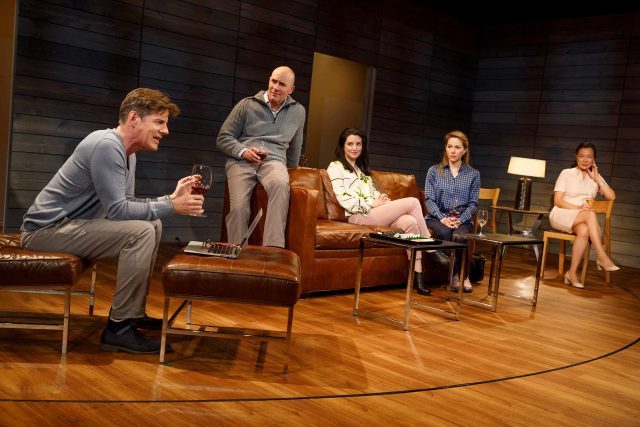
Kevin O’Neill (Rick Holmes) heads an investment club with Geoff Hossmer (Jordan Lage), Pamela Hossmer (Meredith Forlenza), Cara Russo (Kristen Bush), and Alice Tuan (Laura Kai Chen) in MTC world premiere (photo by Joan Marcus)
Giardina (Living at Home) and Tony-winning director Doug Hughes (Doubt, The Father), who previously collaborated on the Drama Desk–nominated Lincoln Center production The City of Conversation, which also featured Bush, steer the ship through an extremely bumpy first act with several key flaws. The discussion about getting Angela into Stillwell seems moot, as it is way too late for her to switch schools in time to affect her chances to go to a better college. There is a serious ethical question about Kevin, who works professionally in private equity, running an investment club, even though the prospect of illegally sharing inside information is brought up. And it seems impossible for Cara to make enough money to afford to move out of Patchett as quickly as she plans to. But the second act is stronger than the first, delving deeper into the characters’ motivations and what they want out of life, which is more complicated than just more money and better education.
“Nobody told us to care about ourselves first,” Cara tells Cathy as she explains why she joined Kevin’s club. “Nobody told us that. And say what you will about that man, that is what he is saying to me.” Later, she adds, “Tell me. Go ahead, say it. You don’t want this. You want mediocrity. You’re happy with mediocrity. You’re happy with this,” referring to their dreary lives in Patchett. Kevin treats finance like sex; when he talks about the opportunities that can open up for Cara, he is practically seducing her. Kevin himself was inspired by the section of The Great Gatsby when the protagonist, then known as James Gatz, rows out to a yacht owned by the much older Dan Cody and becomes his personal assistant; Kevin believes that Gatsby and Cody had a sexual relationship, something that might have ultimately influenced his own life and career. Meanwhile, Angela is reading a worn copy of Leon Uris’s Exodus, more than hinting at the potential exodus of Patchett students across the river to Stillwell. It is small touches like these that rescue the play from drowning itself in murkiness.
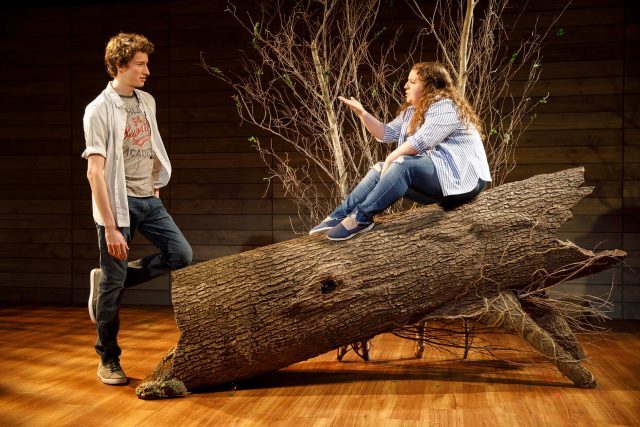
Conor O’Neill (John Kroft) and Angela Russo (Casey Whyland) are caught in the middle of adult shenanigans in new play by Anthony Giardina (photo by Joan Marcus)
The main players, making their way across John Lee Beatty’s effective living-room, classroom, and kitchen sets, give solid performances, particularly Bush (The Common Pursuit, Taking Care of Baby), representing a middle class seeking to improve its lot in life against the odds. Holmes (Junk, Matilda) manages to avoid being a completely unlikable villain, although Kevin says some very hurtful things without regret. Whyland, a 2018 NYU graduate, and Kroft, in his New York debut, are both sympathetic as the teens caught in the middle, not fully understanding, or caring, about the towns’ battle over their future. It also brings to light another central focus of the play: fear. Various characters express being afraid they haven’t done enough for their children (or they’ve done too much), being afraid of change, being afraid of believing they deserve better, even being afraid of money itself. “I am still a little afraid of missing something if I forget that, as my father snobbishly suggested, and I snobbishly repeat, a sense of the fundamental decencies is parcelled out unequally at birth,” Nick Carraway explains at the beginning of The Great Gatsby. In Dan Cody’s Yacht, Giardina attempts to explore that inequality specifically relating to the education gap in contemporary society, though emerging with decidedly mixed test results.
